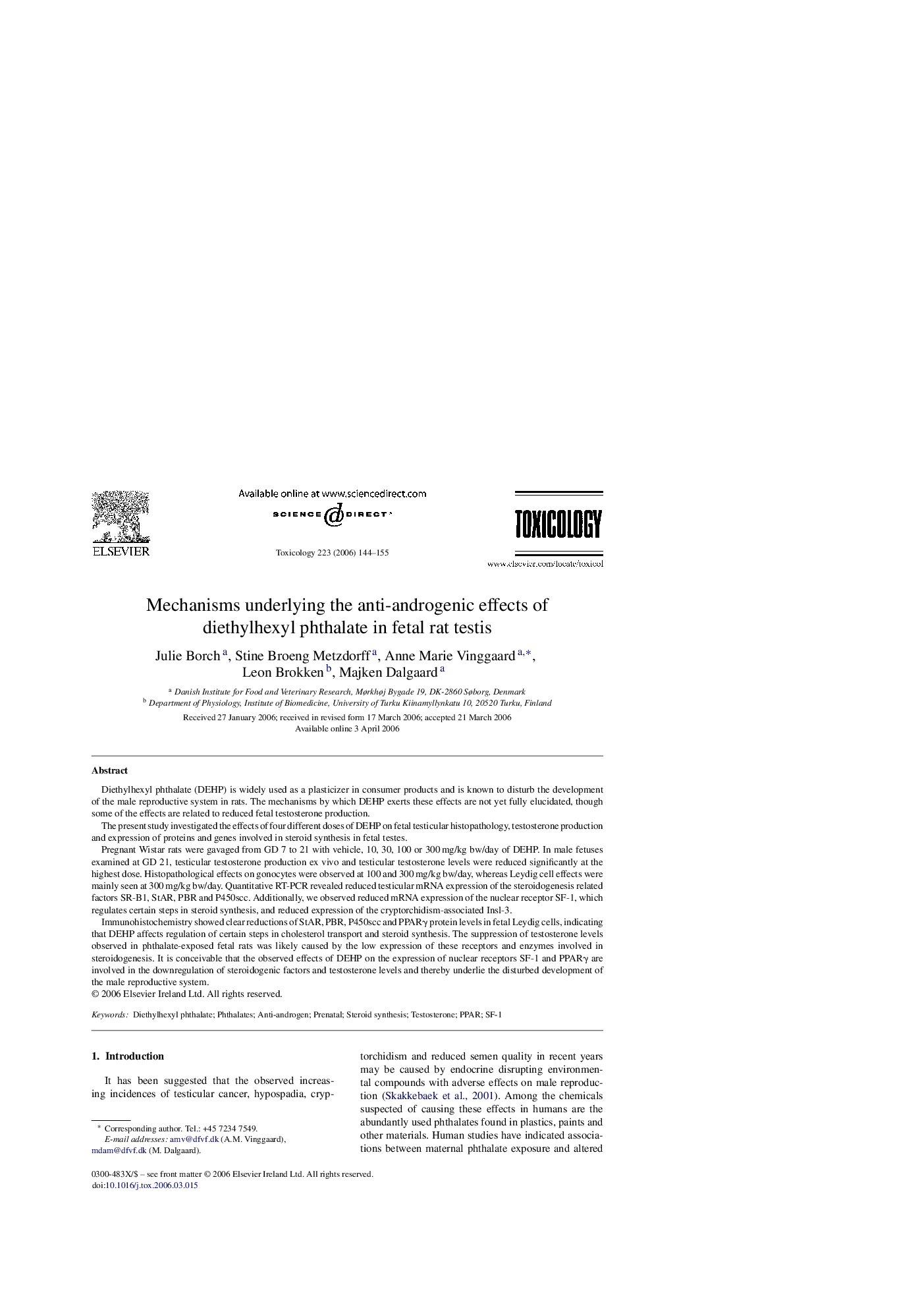| کد مقاله | کد نشریه | سال انتشار | مقاله انگلیسی | نسخه تمام متن |
|---|---|---|---|---|
| 2598265 | 1562433 | 2006 | 12 صفحه PDF | دانلود رایگان |

Diethylhexyl phthalate (DEHP) is widely used as a plasticizer in consumer products and is known to disturb the development of the male reproductive system in rats. The mechanisms by which DEHP exerts these effects are not yet fully elucidated, though some of the effects are related to reduced fetal testosterone production.The present study investigated the effects of four different doses of DEHP on fetal testicular histopathology, testosterone production and expression of proteins and genes involved in steroid synthesis in fetal testes.Pregnant Wistar rats were gavaged from GD 7 to 21 with vehicle, 10, 30, 100 or 300 mg/kg bw/day of DEHP. In male fetuses examined at GD 21, testicular testosterone production ex vivo and testicular testosterone levels were reduced significantly at the highest dose. Histopathological effects on gonocytes were observed at 100 and 300 mg/kg bw/day, whereas Leydig cell effects were mainly seen at 300 mg/kg bw/day. Quantitative RT-PCR revealed reduced testicular mRNA expression of the steroidogenesis related factors SR-B1, StAR, PBR and P450scc. Additionally, we observed reduced mRNA expression of the nuclear receptor SF-1, which regulates certain steps in steroid synthesis, and reduced expression of the cryptorchidism-associated Insl-3.Immunohistochemistry showed clear reductions of StAR, PBR, P450scc and PPARγ protein levels in fetal Leydig cells, indicating that DEHP affects regulation of certain steps in cholesterol transport and steroid synthesis. The suppression of testosterone levels observed in phthalate-exposed fetal rats was likely caused by the low expression of these receptors and enzymes involved in steroidogenesis. It is conceivable that the observed effects of DEHP on the expression of nuclear receptors SF-1 and PPARγ are involved in the downregulation of steroidogenic factors and testosterone levels and thereby underlie the disturbed development of the male reproductive system.
Journal: Toxicology - Volume 223, Issues 1–2, 1 June 2006, Pages 144–155